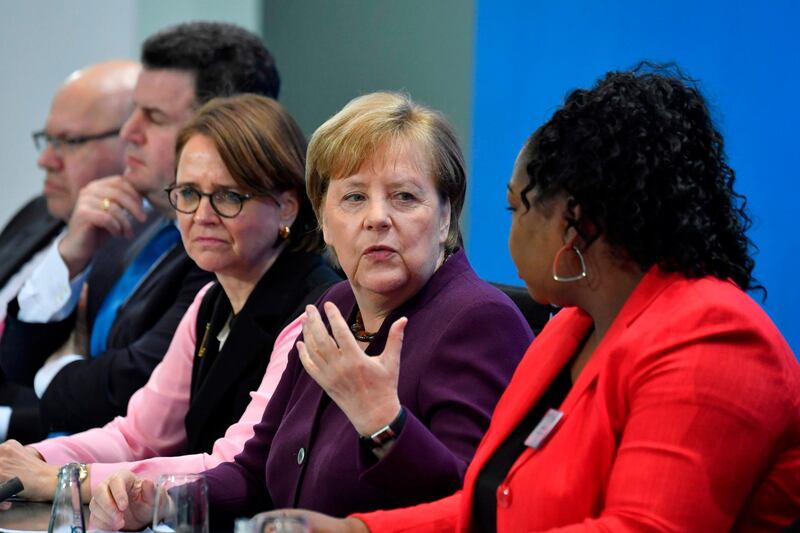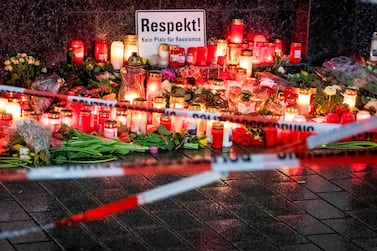German Chancellor Angela Merkel has said fighting racism in Germany is her government’s “deepest concern” as she vowed to tackle far-right extremist attacks.
Mrs Merkel met representatives of migrant organisations on Monday to reassure them that ministers were taking the threat posed by right-wing extremists seriously.
The meeting came two weeks after a German man, 43, shot dead nine people of immigrant background at a shisha bar and a kiosk in the town of Hanau, before killing his mother and himself.
Germany’s federal prosecutor said the attacker, who has been identified only as Tobias R, had posted material online that showed a “deeply racist mindset”.
Mrs Merkel said at the time that the shootings had revealed a poison of racism in Germany.
The deadly attack last month was the third in the country to be carried out by a right-wing extremist in less than a year.
A liberal politician was murdered in his home in Kassel in June last year. Just four months later in October, two people died in the eastern city of Halle after a gunman attacked a synagogue.
Mrs Merkel said the government implemented a package of measures after the synagogue shooting.
"We hope this will have an effect," she said, acknowledging that "this doesn't change the way you feel".
She said that everyone in the country deserved to feel safe, "regardless of their skin colour or faith".
Mrs Merkel was joined at the meeting by Interior Minister Horst Seehofer, who announced the creation of an independent expert group on Islamophobia at the weekend.
Mr Seehofer, who leads the Christian Social Union (CSU) party, has come under fire for comments he has made about Muslims. He has previously declared that "Islam does not belong to Germany".
Last week, a network of 60 migrant-related organisations published an open letter to Mrs Merkel accusing her Christian Democrats party (CDU) and its coalition partners the CSU and the SPD of tailoring their migration and integration policies to win back voters who support the far-right Alternative for Germany party (AfD).
Concerns over the AfD exploded across German politics last month when the party helped to elect a new leader of Thuringa state.
The move was called a “pact with fascism” and forced the resignation of Mrs Merkel’s designated successor as leader of the biggest national party, the CDU.
Germany was exercising “massive structural racism” towards 23 per cent of the country’s residents, who are from a migrant background, migrant network the BKMO said.
State governments across Germany are considering constitutional initiatives that that would insulate institutions from far-right political forces.
A new amendment in Saxony-Anhalt prohibits the "revitalisation or dissemination of National Socialist ideas, the glorification of the National Socialist system of rule, and racist and anti-Semitic activities".








